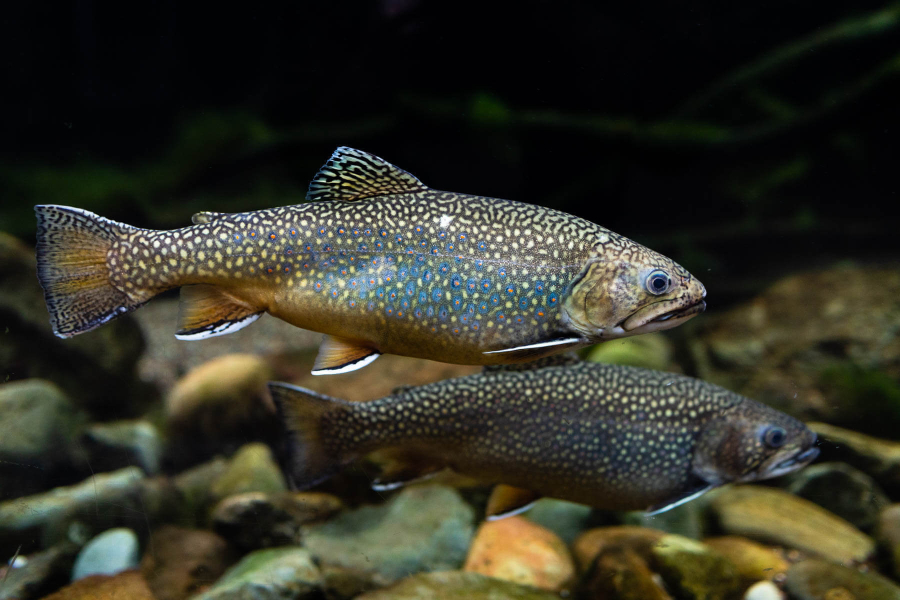For fishing enthusiasts, warming waters is a hot issue

“Back in my day, you wouldn’t believe how many fish were here.”
If you hang around anyone who grew up casting in Chesapeake waters, then you’ve likely heard a statement similar to this. Unfortunately, these folks aren’t just yearning for the good old days. Our rivers, streams and the Bay itself are seeing less of the species that for generations were abundant.
The iconic fish species that the watershed is known for are being impacted by climate change. As global temperatures rise, the water warms, so fish like brook trout that live in cool streams and rivers leave certain spots for good, while fish like striped bass are migrating to their spawning grounds in the Bay’s tributaries earlier and earlier. This increase in temperature, plus rising sea levels, also does damage to underwater grasses, forage fish, stream health and other aspects of the ecosystem that the fish we like to catch rely on for survival.
In a recent report, the American Fly Fishing Trade Association (AFFTA) and its nonprofit AFFTA Fisheries Fund voice their concerns over how climate change, in addition to other environmental issues, are hurting the national industry. According to the report, fly fishing alone generated $1.172 billion in 2018, a 31% increase from the year before. Here in the Chesapeake watershed, fishing results in millions of dollars in state and local tax revenues and creates thousands of jobs.
Though the AFFTA report focuses on impacts to salt waters, we are seeing similar trends and effects across the watershed. Multiple suggestions in the report align with Bay restoration, including working with coastal states to increase the size and distribution of seagrass beds, ensuring forage fish are managed in a way that acknowledges their role as a food source, and improving habitat protection and increasing habitat restoration.
The Chesapeake Bay Program leads an effort to monitor and understand the impact forage fish—smaller fish, shellfish and invertebrates that underwater predators feed on—plays in the Bay’s food chain, as they are also impacted by climate change the same as larger fish. Our efforts to restore underwater grasses, which provide food, habitat and oxygen, are increasingly important as rising temperatures and severe weather affect their growth. The partnership’s work to improve stream health is yet another effort to protect fish as climate change takes its toll.
All of this work is in addition to our conservation efforts not specific to climate change, such as removing barriers to fish passage or managing invasive species. In doing so we hope to restore waters where fish once thrived. Maybe one day, the old-timers will say “Back in my day, you wouldn’t believe how little fish were here.”

Comments
There are no comments.
Thank you!
Your comment has been received. Before it can be published, the comment will be reviewed by our team to ensure it adheres with our rules of engagement.
Back to recent stories